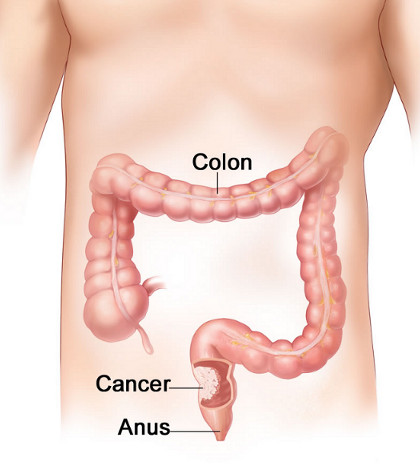The American Cancer Society reports that colon cancer is the second leading cause of cancer-related deaths in the United States, with only lung cancer causing more cancer-related deaths among Americans. More than 50,000 deaths are attributed to this disease every year in our nation. But there are steps you can take to reduce the risk of developing this horrible disease. Prevention is key when it comes to colon cancer. Because it is a disease that is largely preventable, it’s important to know the factors that can contribute to its development. GI doctors throughout the country recommend healthy living for its prevention. That doesn’t mean you have to eliminate all your favorite foods or become an Olympic athlete to avoid getting colon cancer. For many of us, it means changing a little here and there in order to live a longer, healthier life free of colon cancer and its deadly effects. Following are some important tips on lower your risk of colon cancer.
Diet
Getting the proper nutrition is mostly about eating the right foods. Packaged, processed, and sugary foods are okay every now and then, but making them a staple of your everyday diet is a recipe for developing colon cancer. Be sure to include foods that are high in the vitamins and minerals your body needs to promote a healthy digestive system. Green, leafy vegetables, fruits, whole grains, and even green tea are all excellent foods that will help you avoid the incidence of polyps and colon cancer growth.
Exercise
Our nation’s collective sedentary lifestyle has been linked to more than just one or two diseases in the past few decades, and colon cancer tops the list. If you’re not already on a regular exercise routine, walking is a great place to start. In fact, walking is considered one of the best exercises for losing weight as well as maintaining a healthy weight and active lifestyle. Talk to your doctor about an exercise program that’s right for you.
Water
There isn’t much that water doesn’t do, and stave off disease is among the most important of its roles, especially when it comes to keeping your digestive system healthy. Experts agree that drinking at least 8 glasses of pure water every day is a great way to ward off GI diseases. Additionally, it’s important to remember to drink lots of water if you’re beginning to increase your daily fiber intake. Eating more fiber without drinking more water is like trying to get your bathtub clean using cleanser alone. What you get is a clumpy mess. Don’t forget to increase your water intake when you up your daily fiber.
Tobacco products and overuse of alcohol
Smoking is bad for your health, it’s long been established. And tobacco products are among the top contributors to colon cancer. So, too, is drinking too much alcohol Tobacco products and excessive alcohol intake rob your body of vital nutrients that keep it in prime condition. These products also contain chemicals that are foreign to your body that can lead to disease processes.
Screenings
Recent studies report that upwards of 90 percent of all people who will be diagnosed this year with colon cancer are ages 50 and older. If you’re over 50, talk to your doctor about regular screenings for this disease. Screenings are a vital tool when it comes to detecting colon polyps. Scheduling a colon cancer screening in Queens may be the decision that saves your life!
Look at your watch and note the time. Now set it for 9.3 minutes from now. By the time your watch’s alarm goes off, someone in the United States will have died from colon cancer, and every 9.3 minutes after that, another American will have died from this deadly disease. One of the saddest facts about colon cancer is that it is largely preventable. Of course, this fact can also be good news. In many cases, the development of colon polyps and potentially colon cancer could have been avoided. Proper diet, regular exercise, tobacco cessation, and more … these are all effective tools in fighting the development and growth of colon cancer. GI doctors in Queens recommend living a healthy lifestyle that includes getting the vitamins and minerals you need; getting started on a routine exercise program that keeps the body working optimally; reducing, or better yet, eliminating use of tobacco products; limiting alcohol intake; and getting regular screenings for colon cancer, especially if you’re over 50.




